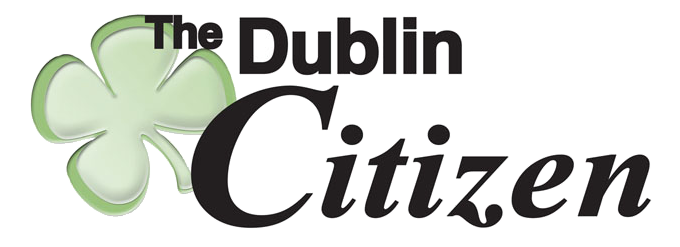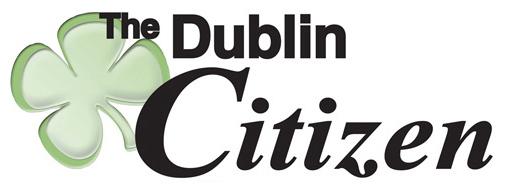When you’re sitting in the stands at a rodeo, the last thing you’re probably thinking about is lines of computer code. “Most people don’t think of anything behind the actual rodeo itself,” said Dublin graduate DeWayne Keith.
But like many parts of today’s society, present day rodeos are supported by an infrastructure of programs that keep everything running smoothly. As a software development engineer at Rodeo Computing Services, it’s Keith’s job to help design and maintain that infrastructure.
Keith graduated from Dublin High School in 2008 and went on to Tarleton, where he started out as a manufacturing engineering major. But after completing an internship at St. Gobain, he decided that he wanted to do a little more exploring before settling on a field.
As he was considering other career paths that interested him, Keith remembered a computer programming class he had taken as part of his engineering degree. “I built this gimmicky program where you could drag cartoon characters around and make them do things on the screen,” he said. “Having the code behind it and seeing how it worked was very intriguing to me.”
With this in mind, Keith talked to the professor of the class, and ended up changing his major. Switching majors halfway through college meant Keith had a lot of catching up to do, but he put in extra work over the summer to be able to graduate on time with a degree in computer information systems and two minors in engineering and math.
His senior year, Keith took on another internship with a company called the Center for Agribusiness Excellence, or CAE, which manages all the crop insurance data for the United States. “Anytime there’s an insurance claim or something like that, it gets sent to them,” he said. “They’re the ones that analyze the data, and the government records, and what the laws are for a given time and county and all that stuff.”
Keith graduated in 2012 as the outstanding graduate of the college of business (and in the fall of 2012 he was asked back to speak at the freshman convocation). Instead of searching for jobs, he ended up staying on at CAE for a few months, helping to manage their databases.
Then, in October, he found another opportunity. One of his college professors, Jason Sharp, recommended he apply at Rodeo Computer Services, a software company based in Stephenville that develops the programs used to keep track of rodeo data and help put on the events.
Keith started off as an entry level database programmer. Now eight years later, he is a software development engineer. Keith spends his days working on the company’s databases and websites, as well as creating mobile apps and computer programs for rodeo events.
He created one such program two years ago which is now used all across the United States. The program, called Roping Management System, helps organize team roping events, and has a few different functions.
First of all, it helps organizers decide which ropers should be paired together in an event. In team roping, two riders must tie down a steer, one securing the head and the other lassoing the legs. Each person is assigned a skill level based on their past performance, and the teams must be set up so that skill levels are balanced.
Keith’s company hosts the databases where roping times are kept, and he built custom algorithms into his program to make sure pairings worked based on competitors’ skills. If someone does not have a partner to enter with, the program allows them to be randomly paired.
When a roping event begins, the program helps things go smoothly for the announcers, displaying the order in which competitors will enter the arena, and calculating standings based on people’s times.
Keith also had to design the program to work pretty much anywhere. “The way our rodeos and stuff work across the state, a lot of them don’t have internet,” he said. “So I had to design the program to basically work on an island, severed from the internet.”
When the program encounters the internet again, it uploads all the data to the databases and shares it to apps and websites. “It’s like using the ESPN app to keep up with a football or basketball game,” he said. “You can see the play-by-play as the times come in, and as they’re running and making times they can keep up with it on their phone and see how the roping is going.”
Developing the software took Keith over a year of hard work. “I spent a solid 14 months working on it,” he said. “And most of that was 8-12 hour days. But we got it launched and it’s been working pretty good.”
Keith enjoys working for Rodeo Computer Services, and plans to stay there for the foreseeable future. The company is small — only three people including Keith — which means that Keith gets to work more deeply with his programs than developers might at bigger companies.
“With major companies, you’ll have probably 50 to 100 people working on a program,” he said. “But for my program it was literally just me working on it so I got to develop every single aspect of it, from the back end to what the user sees to the entire automation side of it.”
In normal times, Keith works from the company’s office in Stephenville. Since the pandemic began, however, he has been working from home.
When Keith has some free time, he often returns to his long-time side job of refereeing football games at various levels. “I’ve done that since I graduated in 2008,” he said. “I’ll do anything from junior high games here in Stephenville, high school games up in the Metroplex, and college games in the Lone Star Conference. I got to work state championship games the last two years for the high school level, so that was pretty fun.”
Five years ago, Keith married Taylor (White) Keith, who he had known in high school, and they now live in Stephenville.
Throughout his life, Keith’s family has been a great source of inspiration to him. His father Don Keith is a farmer and former dairyman, and his mother Susan Keith is retired from her job as a photographer in town. Both still live in the Highland Community outside of Dublin.
“My parents and the rest of my family, I mean, we all were really close out there,” he said. “And I was raised in the church my whole life. The way I was raised taught me how to treat people and how to view the world, and it really helped me navigate the craziness of everything out here.”
Keith’s advice to Dublin graduates is to make a point of trying new things. “When I changed my major, I was scared to death of wasting money and switching at the last minute,” he said. “But it’s obviously been the best thing that could have happened to me and I am definitely happy with where my life is at. Don’t be afraid to try new things. Even if it doesn’t work out, you’ll learn from the lessons and decide what is better for you.”
Editor’s Note: This column chronicles what Dublin graduates have done since high school. If you have any suggestions for other graduates, email publisher@dublincitizen.com.

